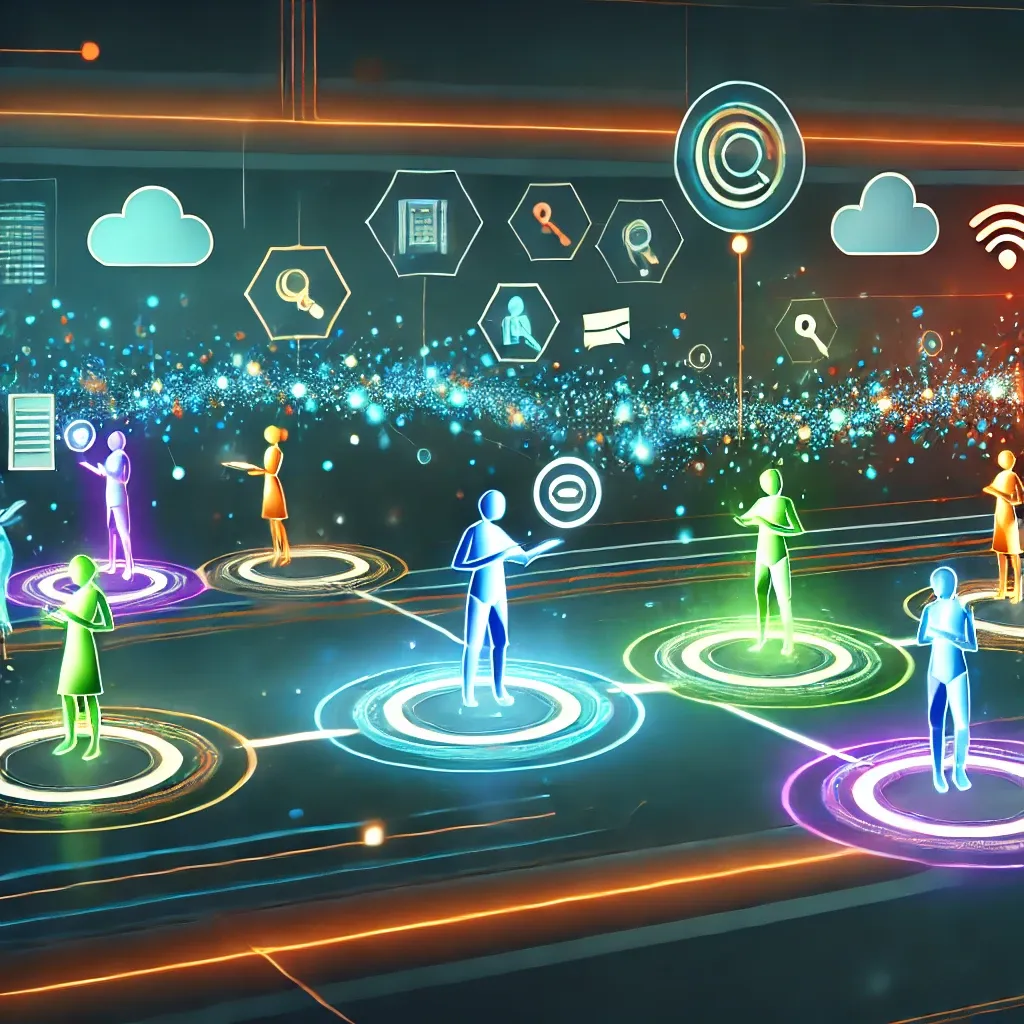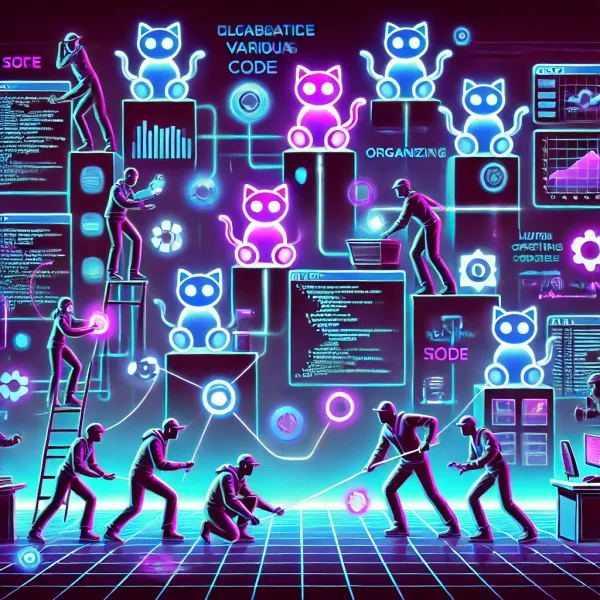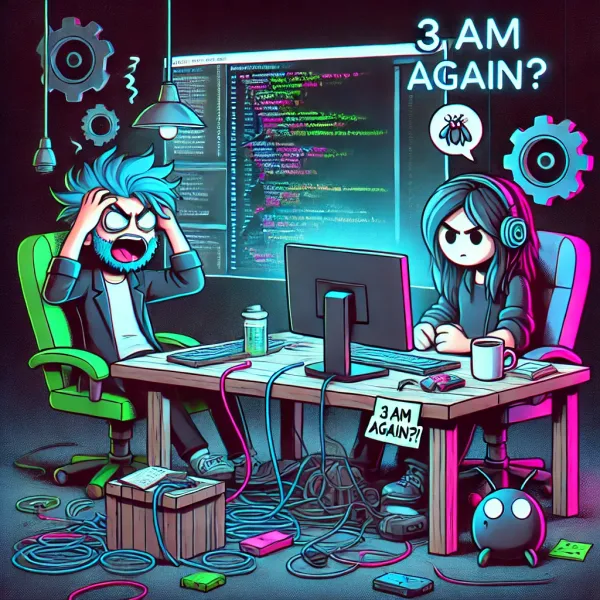Effective Knowledge Sharing within Teams: The Art of Actually Telling People Stuff
So, you've got a team of software engineers, and it turns out the biggest challenge isn't solving complex algorithms or optimizing spaghetti code—it's actually sharing what you know. We all think we’re communicating, but no one actually knows what’s going on.

So, you've got a team of software engineers, and it turns out the biggest challenge isn't solving complex algorithms or optimizing spaghetti code—it's actually sharing what you know. If you're nodding your head, congratulations, you've officially encountered the fundamental paradox of teamwork: we all think we’re communicating, but no one actually knows what’s going on.
Why Knowledge Sharing Matters (Hint: It's More Than Just Not Being a Jerk)
Let's be real: keeping knowledge to yourself might make you feel powerful for about two seconds, but when you become the bottleneck that keeps everyone waiting, you’re not a wizard—you’re a roadblock. Effective knowledge sharing doesn’t just make you look good; it actually makes the entire team better, which means fewer late-night debugging sessions and fewer passive-aggressive Slack messages.
Knowledge sharing within teams helps spread out the load, prevents your precious knowledge from going the way of the dinosaurs if you decide to quit (or just take a well-deserved vacation), and saves everyone time by reducing redundant work. Plus, it’s a fantastic way to build trust—because nothing says “I’ve got your back” like a well-documented solution to the problem someone else is about to face.
Common Knowledge Sharing Barriers (And Why You Should Care)
Let's talk about why this isn't happening. In an ideal world, we'd all be working like a perfectly synced hive mind, but in reality, there's always something getting in the way.
-
Time: Yeah, we’re all too busy building features and fixing bugs to document our work or share that insight we just figured out. Ironically, the more time we save by not sharing knowledge, the more time we waste down the line when someone else has to figure out the same thing from scratch.
-
Fear of Looking Dumb: Imposter syndrome is alive and kicking. Engineers often hesitate to share because they think they should have already known the answer or because they’re worried about giving wrong information. But honestly, nothing is dumber than keeping silent while your teammate spends an hour recreating the wheel.
-
Information Silos: We’ve all seen it: those pockets of information that only one person knows, like Carl, who wrote the original integration for the payments system—the same Carl who’s currently in Bali and not answering emails. Silos are comfortable for the keeper of the knowledge but infuriating for everyone else.
Practical Ways to Share Knowledge Without Boring Everyone to Death
Knowledge sharing doesn’t have to be some grand event where everyone gathers round while you drop pearls of wisdom. In fact, making it part of the team’s day-to-day culture is the secret.
-
Code Reviews, But Make Them Fun: Code reviews are not just about pointing out that someone forgot a semicolon. Use them as an opportunity to share why you wrote something the way you did. The context you provide might teach your teammate something new—or save them from a future bug. And if you're tired of formal reviews, try pairing up for an informal walkthrough. Bring coffee. Call it a "code safari."
-
Documentation, But Not the Dull Kind: No one wants to write documentation, but everyone loves having good documentation. Keep it simple, please. Bullet points, GIFs, and memes are all acceptable, as long as your point gets across. The goal is for someone to read it without dozing off—not to win a Pulitzer.
-
Tech Talks for Dummies (That Means All of Us): Set up low-pressure knowledge sharing sessions where the only requirement is that you share something—anything. Keep it casual, and if you can include snacks, even better. Sometimes these can be quick updates on new tools, or a hard-won lesson about why your regex destroyed the database. No fancy slides required.
-
Slack Channels That Actually Help: Let’s face it, Slack can be a productivity killer. But a dedicated channel for random tips and gotchas can become a treasure trove of knowledge. That way, when Jeff figures out the one weird trick to prevent your deployment from blowing up, everyone else can benefit from it—in real time.
Embrace the Messy, Human Side of Knowledge Sharing
Remember, no one is expecting you to have it all figured out. In fact, the beauty of knowledge sharing lies in its messiness. It’s about admitting that we’re all human, we’re all figuring things out as we go, and sometimes we’re wrong—and that’s okay. Creating a culture of openness and curiosity is more important than always getting it right.
So next time you stumble upon something interesting, share it. The more we share, the easier our jobs get—and the more time we’ll have for the fun stuff, like brainstorming impractical feature ideas or arguing about tabs versus spaces. Spoiler alert: it’s spaces.
TL;DR
- Sharing knowledge is not just for the good of the team, it’s for your sanity too.
- Make time for it—even if it's just jotting down a quick note or talking during lunch.
- Use informal, fun ways to share. You don’t need a TED Talk; a Slack post or a GIF will do.
Start sharing—because the only thing worse than struggling alone is making your teammates do the same thing, while they secretly curse your name.




